
Chiang Kai-shek was a Chinese politician, revolutionary, and general who led the Republic of China (ROC) from 1928 until his death in 1975. His government was based in mainland China until it was defeated in the Chinese Civil War by the Chinese Communist Party (CCP) in 1949, after which he continued to lead the Republic of China on the island of Taiwan. Chiang served as the de facto leader of the Nationalist Kuomintang (KMT) party and the commander-in-chief of the National Revolutionary Army (NRA) from 1926 until his death, during which he was known as Generalissimo.

The Chinese Civil War was fought between the Kuomintang-led government of the Republic of China and the forces of the Chinese Communist Party (CCP), with armed conflict continuing intermittently from 1 August 1927 until Communist victory resulted in their total control over mainland China on 7 December 1949.

Wang Zhaoming, widely known by his pen name Wang Jingwei, was a Chinese politician who was president of the Reorganized National Government of the Republic of China, a puppet state of the Empire of Japan. He was initially a member of the left wing of the Kuomintang (KMT), leading a government in Wuhan in opposition to the right-wing Nationalist government in Nanjing, but later became increasingly anti-communist after his efforts to collaborate with the Chinese Communist Party ended in political failure.

The Northern Expedition was a military campaign launched by the National Revolutionary Army (NRA) of the Kuomintang (KMT) against the Beiyang government and other regional warlords in 1926. The purpose of the campaign was to reunify China, which had become fragmented in the aftermath of the 1911 Revolution. The expedition was led by Generalissimo Chiang Kai-shek, and was divided into two phases. The first phase ended in a 1927 political split between two factions of the KMT: the right-leaning Nanjing faction, led by Chiang, and the left-leaning faction in Wuhan, led by Wang Jingwei. The split was partially motivated by Chiang's Shanghai Massacre of Communists within the KMT, which marked the end of the First United Front. In an effort to mend this schism, Chiang Kai-shek stepped down as the commander of the NRA in August 1927, and went into exile in Japan.
The history of the Republic of China began in 1912 with the end of the Qing dynasty, when the Xinhai Revolution and the formation of the Republic of China put an end to 2,000 years of imperial rule. The Republic experienced many trials and tribulations after its founding which included being dominated by elements as disparate as warlord generals and foreign powers.

Shanhai Pass or Shanhaiguan is the eastern end of the Great Wall of China and one of its major passes. It commands the narrowest choke point in the strategic Liaoxi Corridor, a crucial coastal landway between the North and Northeast China. It is located in Shanhaiguan District, Qinhuangdao, Hebei province, on the east bank of the Shi River between the Yan Mountains and the coast of Liaodong Bay.
This article is concerned with the events that preceded World War II in Asia.

Patrick Jay Hurley was an American attorney, Republican Party politician, military officer, and diplomat. He was the 51st United States Secretary of War from 1929 to 1933 in the cabinet of Herbert Hoover and a key American diplomat during World War II. As ambassador to China in 1944 and 1945, Hurley is remembered for his instrumental role in the recall of General Joseph Stilwell in favor of Albert Coady Wedemeyer, his advocacy for a rollback strategy in China, and his public criticism of State Department policy at the onset of the Second Red Scare. He was the first Oklahoman to serve in a presidential cabinet.
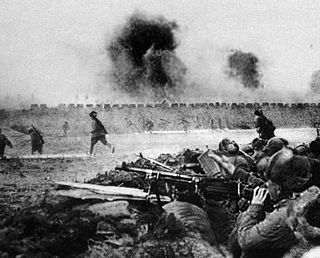
The Liaoshen campaign, an abbreviation of Liaoning–Shenyang campaign after the province of Liaoning and its Yuan directly administered capital city Shenyang, was the first of the three major military campaigns launched by the Communist People's Liberation Army (PLA) against the Kuomintang Nationalist government during the late stage of the Chinese Civil War. This engagement is also known to the Kuomintang as the Liaohsi campaign, and took place between September and November 1948, lasting a total of 52 days. The campaign ended after the Nationalist forces suffered sweeping defeats across Manchuria, losing the major cities of Jinzhou, Changchun, and eventually Shenyang in the process, leading to the capture of the whole of Manchuria by the Communist forces. The victory of the campaign resulted in the Communists achieving a strategic numerical advantage over the Nationalists for the first time in its history.

The Marshall Mission was a failed diplomatic mission undertaken by US Army General George C. Marshall to China in an attempt to negotiate between the Chinese Communist Party and the Nationalists (Kuomintang) to create a unified Chinese government.

The Second United Front was the alliance between the ruling Kuomintang (KMT) and the Chinese Communist Party (CCP) to resist the Imperial Japanese invasion of China during the Second Sino-Japanese War, which suspended the Chinese Civil War from 1937 to 1945.

The Shanghai massacre of 12 April 1927, the April 12 Purge or the April 12 Incident as it is commonly known in China, was the violent suppression of Chinese Communist Party (CCP) organizations and leftist elements in Shanghai by forces supporting General Chiang Kai-shek and conservative factions in the Kuomintang. Following the incident, conservative KMT elements carried out a full-scale purge of communists in all areas under their control, and violent suppression occurred in Guangzhou and Changsha. The purge led to an open split between left-wing and right-wing factions in the KMT, with Chiang Kai-shek establishing himself as the leader of the right-wing faction based in Nanjing, in opposition to the original left-wing KMT government based in Wuhan, which was led by Wang Jingwei. By 15 July 1927, the Wuhan regime had expelled the Communists in its ranks, effectively ending the First United Front, a working alliance of both the KMT and CCP under the tutelage of Comintern agents. For the rest of 1927, the CCP would fight to regain power, beginning the Autumn Harvest Uprising. With the failure and the crushing of the Guangzhou Uprising at Guangzhou however, the power of the Communists was largely diminished, unable to launch another major urban offensive.
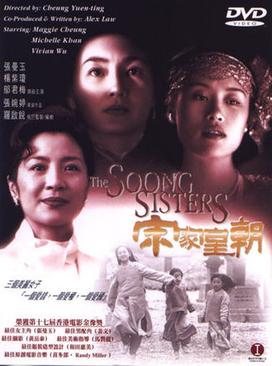
The Soong Sisters is a 1997 Hong Kong historical drama film based on the lives of the Soong sisters from 1911 to 1949. The three sisters married the most important historical figures – Sun Yat-sen, Chiang Kai-shek and K'ung Hsiang-hsi – in the founding of the Republic of China, making their family the focal point of every major decision made in modern Chinese history. Directed by Mabel Cheung, the film starred Maggie Cheung, Michelle Yeoh and Vivian Wu as the sisters. The screenplay was written by Mabel Cheung's husband, Alex Law, whom she frequently collaborates with.
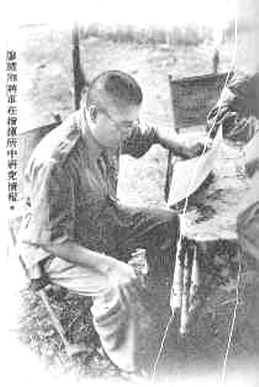
Liao Yiaoxiang, was a high-ranking Kuomintang commander who successful fought against both the Imperial Japanese Army and Chinese Communist forces. Apart from General Sun Liren, he was one of the few Nationalist commanders who graduated from a military academy in the West. After the end of the Second Sino-Japanese War, he served as a field commander in Manchuria until his capture by Marshal Lin Biao's Manchurian Field Army in the Liaoshen Campaign. General Liao was held for 12 years as a prisoner of war until 1961 and died seven years later during the Cultural Revolution.
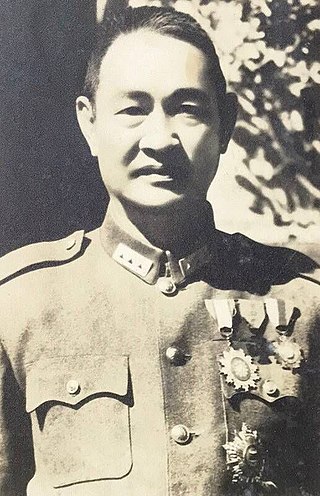
Cheng Qian was a Chinese army officer and politician who held important military and political positions in both the Republic of China and the People's Republic of China. Educated at the Imperial Japanese Army Academy and Waseda University, he first met Sun Yat-sen in Tokyo, becoming an early supporter. Later, under Chiang Kai-shek, he was one of the most powerful members of the Kuomintang, notably serving as Chief of Staff of the Military Affairs Commission during the Second Sino–Japanese War.
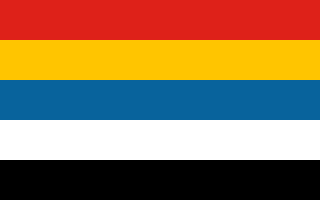
The Republic of China (ROC) began on 1 January 1912 as a sovereign state in mainland China following the 1911 Revolution, which overthrew the Manchu-led Qing dynasty and ended China's imperial history. From 1927, the Kuomintang (KMT) reunified the country and ruled it as a one-party state with Nanjing as the national capital. In 1949, the KMT-led government was defeated in the Chinese Civil War and lost control of the mainland to the Chinese Communist Party (CCP). The CCP established the People's Republic of China (PRC) while the ROC was forced to retreat to Taiwan; the ROC retains control over the Taiwan Area, and its political status remains disputed. The ROC is recorded as a founding member of both the League of Nations and the United Nations, and previously held a permanent seat on the United Nations Security Council until 1971, when the PRC took China's seat in the United Nations General Assembly Resolution 2758. It was also a member of the Universal Postal Union and the International Olympic Committee. The ROC claimed 11.4 million km2 (4.4 million sq mi) of territory, and its population of 541 million in 1949 made it the most populous country in the world.

The Chinese Communist Revolution was a social revolution in China that began in 1927 and culminated with the proclamation of the People's Republic of China (PRC) in 1949. The revolution was led by the Chinese Communist Party (CCP), which afterwards became the ruling party of China. The revolution resulted in major social changes within China and has been looked at as a model by revolutionary Communist movements in other countries.

The Wars for Asia 1911–1949 by S. C. M. Paine is a book published in 2012 by Cambridge University Press. The work presents a view of three "nested wars" in early twentieth century East Asia, seen as distinct conflicts which, while carried on simultaneously, had their own welter of cause and dynamic: the Chinese Civil War 1911–1949; the Second Sino-Japanese War 1931–1945; the Second World War 1941–1945.

The July 15 Incident, known by the Chinese Communist Party (CCP) as the July 15 counter-revolutionary coup, and as the Wuhan–Communist split by the Kuomintang (KMT), occurred on 15 July 1927. Following growing strains in the coalition between the KMT government in Wuhan and the CCP, and under pressure from the rival nationalist government led by Chiang Kai-shek in Nanjing, Wuhan leader Wang Jingwei ordered a purge of communists from his government in July 1927.

Following their defeat in the Chinese Civil War, on December 7, 1949, the remnants of the Nationalist government of the Republic of China (ROC), alongside many refugees, retreated to the island of Taiwan (Formosa). The exodus is sometimes called the Great Retreat in Taiwan. The Nationalist Kuomintang party (KMT), its officers, and approximately 2 million ROC troops took part in the retreat, in addition to many civilians and refugees, fleeing the advance of the People's Liberation Army (PLA) of the Chinese Communist Party (CCP). The CCP, who now effectively controlled most of mainland China, spent the subsequent years purging any remnant Nationalist agents in western and southern China, solidifying the rule of the newly established People's Republic of China (PRC).

















